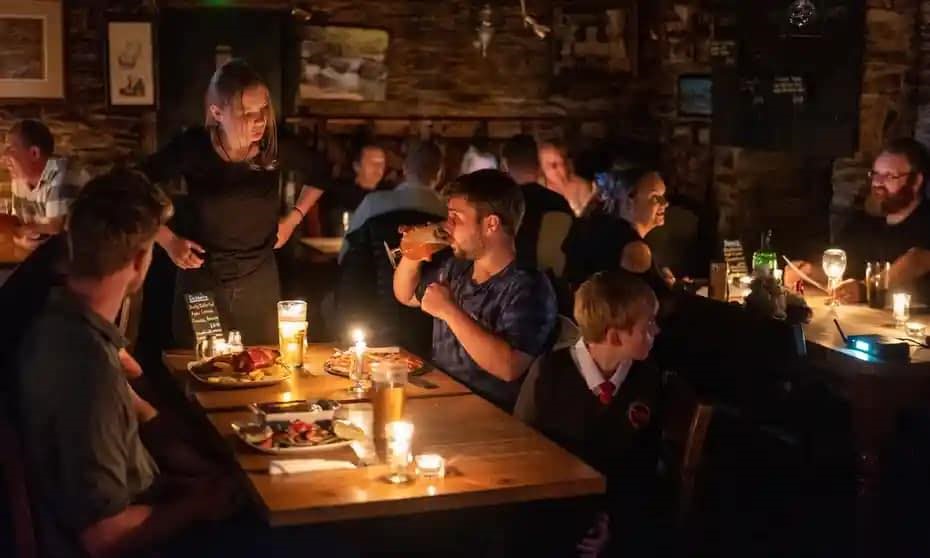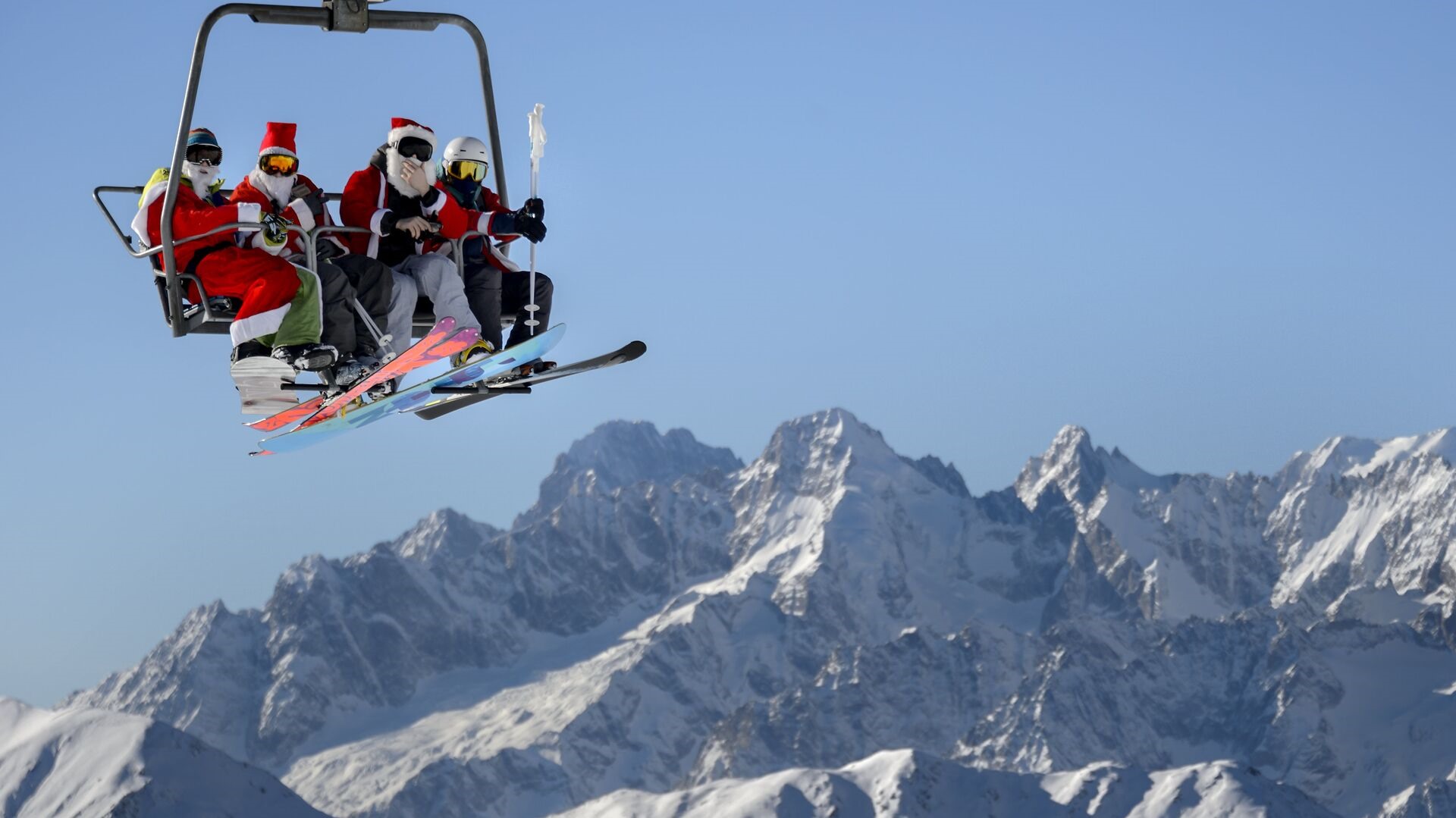A dinner by the candlelight may seem romantic, but this image reflects the harsh reality of the energy crisis in Europe. Since the end of September, owners of restaurants and bars in The Mason Arms area in Camelford, Cornwall (UK) have attracted attention when they decided to turn off the lights and light the candles every Monday. This is one of the efforts to cut electricity bills, avoiding the risk of closing due to losses in the context of rising energy prices.

Not only do businesses and tourist destinations in the UK feel pressured, tourists also need to prepare for an incomplete trip because from Paris to Praha, all of them are applying energy-saving measures for this winter. For example, Paris announced that the lights were turned off three hours early every day on the Champs-Elysees and even Christmas decoration models, or diners were advised to bring extra blankets when eating in Italy or Spain - where they limit the use of heating systems this winter.
France: Power off the light capital
Paris will turn off the lights early this winter. Accordingly, Eiffel Tower no longer lit up in the middle of the capital from 11:45 p.m., instead of 1 a.m. The turn-off time is also applied to the pyramid in front of the Louvre, Versailles Palace.
This change is part of the national "energy safety plan" and the city of Paris registered to cut 10% of total electricity consumption. Since October, stores along the Champs-Elysees have also turned off their lights early, reducing the number of decorative lights this Christmas season. Meanwhile, the plan to light the lamps at the Royal Palace of Sacre-Cœur and Khai Hoan Mon churches has not been abandoned. However, the city will leave a sufficient amount of light to please tourists, for example, the bridges along the River River River are still as bright as usual.
Public sector workers and residents in social housing are also preparing for a colder winter when the permitted heating temperature is 19 to 18 degrees Celsius. The city is also putting pressure on private real estate, including hotels, to implement similar cuts.
Germany: Christmas is no longer sparkling
The year-end holiday season in Germany will have less decorative lights. Cities, towns, and Christmas markets across the country will turn off their lights early. In many places, power-assed ice rinks for maintenance will be replaced with fake ice rinks.
In addition, Christmas markets have also postponed opening until the end of November. The heating system in public buildings such as museums and theaters will be limited, monuments and tourist attractions will also have their lights turned off at night.
In the capital Berlin, the early light switch is in place for around 200 locations, including the Cathedral, Brandenburg Gate, and Charlottenburg Palace. In the city of Hamburg, the Alster fountain has also stopped operating two months earlier than usual, although winter has not yet arrived.
Spain: Limit heating temperatures
Spain deals with the energy crisis in three main ways: using the additional income tax applied to energy companies to subsidizes household electricity bills; giving people free train tickets for four months, and requiring businesses and public organizations to cut electricity and gas consumption.
The final measure affects the most tourists. The minimum temperature in the summer that stores, restaurants and hotels can set for air conditioning is 27 degrees Celsius, while the maximum temperature for heating in public spaces in winter will be 19 degrees Celsius. Shops and buildings without users must turn off decorative lights at 10pm. Business establishments and public spaces must close to keep the air warm in winter or cool in summer.
Italy: Early light outage
The time of use and temperature of heating systems in apartments will be limited. Public buildings and offices will be colder in winter.
Greece: Gasoline price increase and increase flights
With 40% of its gas dependent on Russia, Greece has been hit hard by the energy crisis. However, people are receiving many supplies in terms of electricity and gasoline prices.
Greek Tourism Minister Vassilis Kikilias recently said the country will extend the tourist season by maintaining flights from Northern and Central Europe. The country's environment and energy minister predicted that Greece will have almost no power outages this winter.
dress: Abdominal tightness
Many coffee shops, bars, restaurants and stores in the Austrian capital have taken immediate action to cut off electricity consumption. For example, the heating temperature in winter is 18 degrees Celsius, the lighting time at Christmas markets in 2022 will decrease to 364 hours compared to 660 hours in 2021. Specifically, the markets will use LED decorative lights, turned on from 15:00 to 22:00 every day.
Scalp resorts in the Alps in Austria will also operate with many limitations, such as fewer cable car seats for more skiers, no evening lights, less snow spraying... Tourists are advised to choose resorts using sustainable energy such as SkiWelt in Tyrol to save costs.





